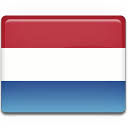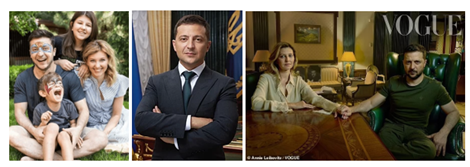One year war in Europe
Often war is seen as the inevitable climax of a clash of two civilizations.
“The democratic world will win this historic battle.
Ukraine will win.”
President of Ukraine, Volodymyr Zelensky
Zelensky gained worldwide recognition as the war leader of Ukraine during the Russian invasion one year ago, February 24, 2022. The Harvard Political Review wrote that Zelensky "harnessed the power of social media to become the first true online war leader in history, bypassing traditional gatekeepers while using the internet to reach the people.
Who is this Zelensky?
Zelensky grew up as a native Russian speaker in Kryvyi Rih, a major city of Dnipropetrovsk Oblast in central Ukraine. Prior to his acting career, he obtained a degree in law from the Kyiv National Economic University. He then pursued a career in comedy and created the production company Kvartal 95, which produced films, cartoons, and TV shows. According to Zelenskyy, the objective of the company is: “to make the world a better place, a kinder and more joyful place with the help of those tools that we have, which are humor and creativity".
The TV series Servant of the People (now on Netflix), in which Zelensky played the role of the Ukrainian president, aired from 2015 to 2019 and was immensely popular.
Servant of the People became a real political party and in 2019 Zelensky won the elections; a liberal, centrist, pro-European party, promising tough action against the large-scale corruption and to “form a professional government that people of Ukraine will trust, and together, introduce drastic changes that will help us make Ukraine a free, independent and successful Dream Country”.
Let’s rewind …
The name 'Ukraine' is 800 years old and is etymologically derived from the Proto-Slavic word for 'borderland’. For centuries, Ukraine has been divided between empires. At the end of First World War the Red Bolschevik Armies clashed with the White Armies (former large landowners, the former army top, the Russian nobility, but also foreign troops who were still in the neighborhood at the end of WW1). The ideology of the Soviet Union included the collectivization of agriculture, which was ruthlessly imposed. This led to a terrible famine in Ukraine (known as the Holodomor), which lleft millions of people starving to death in the 1930's. In the Second World War, populations were pitted against each other, manipulated by both the Nazis and the Soviets, with dire consequences. After Belarus and Poland, Ukraine suffered the most from WW2.
In the 1980's Glasnost and Perestroika gave room to nationalistic ideas that were still alive despite decades of Russification. In 1991 Ukraine declared its independence from the Soviet Union.
In 2014, a pro-European government came in power after months of Euromaidan protests (in which almost 100 protesters and 13 policemen died) and the subsequent Revolution of Dignity. This was not well received everywhere. Cultural differences between east and west Ukraine led to rising tensions. Als a result, the peninsula Crimea was annexed by Russia (of great strategic importance) and pro-Russian separatists in the Donbas started fighting the Ukrainian army (important hub of Russian industrialization during the Soviet era because of its coal reserves).
On the morning of Thursday, February 24, 2022, President Putin announced a "special military operation" in the Donbas. In a speech, Putin said the invasion was an act of self-defense against NATO expansion. Soon after, Ukraine applied for EU membership.
-----

Zelensky kreeg wereldwijde erkenning als de oorlogsleider van Oekraïne tijdens de Russische invasie een jaar geleden, 24 februari 2022. De Harvard Political Review schreef dat Zelensky "de kracht van sociale media gebruikte om de eerste echte online oorlogsleider in de geschiedenis te worden, waarbij hij traditionele poortwachters omzeilde en het internet gebruikte om de mensen te bereiken.
Wie is deze Zelensky?
Zelensky groeide op in het Russisch sprekende Kryvyi Rih, een grote stad in de oblast Dnjepropetrovsk in centraal Oekraïne. Voorafgaand aan zijn acteercarrière behaalde hij een diploma rechten aan de Kyiv National Economic University. Hij richtte het productiebedrijf Kvartal 95 op, dat films, tekenfilms en tv-shows produceerde. Volgens Zelenskyy is het doel van het bedrijf: "de wereld een betere plek maken, een vriendelijkere en vreugdevollere plek maken met behulp van de tools die we hebben, namelijk humor en creativiteit".
De tv-serie Servant of the People (nu op Netflix), waarin Zelensky de rol van de Oekraïense president speelde, werd uitgezonden van 2015 tot 2019 en was immens populair.
Dienaar van het Volk werd een echte politieke partij en in 2019 won Zelensky de verkiezingen; een liberale, centristische, pro-Europese partij, die harde maatregelen belooft tegen de grootschalige corruptie en om “een professionele regering te vormen die de bevolking van Oekraïne zal vertrouwen, en samen drastische veranderingen door te voeren die ons zullen helpen van Oekraïne een vrij, onafhankelijk en succesvol Droomland te maken”.
Even terugspoelen in de tijd...
De naam 'Oekraïne' is 800 jaar oud en is etymologisch afgeleid van het Oerslavische woord voor 'grensgebied'. Al eeuwenlang is Oekraïne verdeeld tussen rijken. Aan het einde van de Eerste Wereldoorlog kwamen de Rode Bolsjewistische Legers in botsing met de Witte Legers (voormalige grootgrondbezitters, de voormalige legertop, de Russische adel, maar ook buitenlandse troepen die aan het einde van WO I nog in de buurt waren). De ideologie van de Sovjet-Unie omvatte de collectivisering van de landbouw, die meedogenloos werd opgelegd. Dit leidde tot een verschrikkelijke hongersnood in Oekraïne (bekend als de Holodomor), waardoor in de jaren dertig miljoenen mensen de hongerdood stierven. In de Tweede Wereldoorlog werden bevolkingsgroepen tegen elkaar opgezet, gemanipuleerd door zowel de nazi's als de Sovjets, met alle gevolgen van dien. Oekraïne leed na Wit-Rusland en Polen het meest onder de Tweede Wereldoorlog.
In de jaren '80 gaven Glasnost en Perestroika ruimte aan nationalistische ideeën die er ondanks decennia van russificatie nog leefden. In 1991 verklaarde Oekraïne zich onafhankelijk van de Sovjet-Unie.
In 2014 kwam een pro-Europese regering aan de macht na maanden van Euromaidan-protesten (waarbij bijna 100 demonstranten en 13 politieagenten omkwamen) en de daaropvolgende Revolution of Dignity. Dit viel niet overal in goede aarde. Culturele verschillen tussen Oost- en West-Oekraïne leidden tot oplopende spanningen. Als gevolg hiervan werd het schiereiland de Krim geannexeerd door Rusland (van groot strategisch belang) en begonnen pro-Russische separatisten in de Donbas te vechten tegen het Oekraïense leger (belangrijk knooppunt van de Russische industrialisatie tijdens het Sovjettijdperk vanwege zijn steenkoolreserves).
Op de ochtend van donderdag 24 februari 2022 kondigde president Poetin een "speciale militaire operatie" in de Donbas aan. In een toespraak zei Poetin dat de invasie een daad van zelfverdediging was tegen de uitbreiding van de NAVO. Kort daarna vroeg Oekraïne het EU-lidmaatschap aan.
-----
“You must suppress hate. Since the beginning of the war I have come to like simple things. Silence. Humor is important not to freak out. You can't live without a smile.” (Volodymyr Zselensky)
“These have been the most horrible months of my life, and the lives of every Ukrainian. Frankly I don't think anyone is aware of how we have managed emotionally. We're looking forward to victory. We have no doubt we will prevail. And this is what keeps us going.” (Olena Zelenska)

Simon Shuster (TIME journalist): Zelensky’s success as a wartime leader has relied on the fact that courage is contagious. It spread through Ukraine in the first days of the invasion, as everyone realized the President had stuck around.
His professional instincts derived from a lifetime as an actor on the stage, which meant he knew how to read a crowd and react to its moods and expectations. Now his audience was the world. He was determined not to let them down.
Courage came to define his fellow Ukrainians, too. Instead of running for their lives, many Ukrainians grabbed whatever weapons they could find and ran to defend their towns and cities against an invading force armed with tanks and attack helicopters.